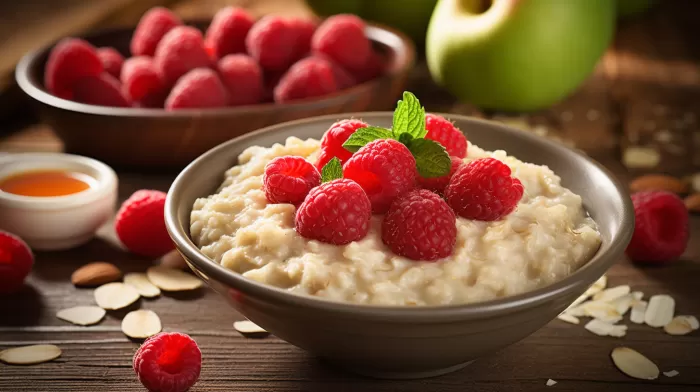A study conducted in Boston has deduced that consuming a particular nutrient can lower the risk of mortality by 25 percent in the nine years following a heart attack. You might be thinking it’s some rare nutrient, but it’s not. Actually, it’s a simple and familiar ingredient: dietary fiber. While numerous studies advocate the benefits of a fiber-rich diet, this research proves that fiber consumption plays a significant role even after experiencing a first heart attack.
In this study, it was observed that cereal fiber had the most significant impact. However, most Americans fail to meet the daily recommendations for fiber intake, as only 5 percent consume the minimum recommended: 25 grams per day for women and 38 grams per day for men. With such staggering statistics in mind, let’s dive deeper into the world of fiber and analyze the foods that can help you maintain a healthy heart.
Why is fiber important for your heart?
Fiber, specifically soluble fiber, can help lower the levels of ‘bad’ cholesterol (known as LDL) in your blood. Soluble fiber dissolves into a gel-like substance, which traps fat and cholesterol particles, thereby preventing their absorption into the blood and reducing overall cholesterol levels. Healthy levels of cholesterol reduce the risk of heart diseases and stroke.
Now that we know why fiber is essential for maintaining a healthy heart, let’s explore some fiber-rich foods you can incorporate into your diet.
Top fiber-rich foods for a healthy heart
Apples
Apples, which contain more than 4 grams of fiber each, are an excellent grab-and-go source of fiber. Experts recommend eating the fruit with its skin on for the optimum benefits. Apples are also packed with antioxidants, which help to prevent the oxidation of LDL cholesterol, reducing the risk of heart disease.
Raspberries
Boasting 8 grams of fiber per cup, raspberries are a heart-healthy snack option. Besides their high fiber content, raspberries contain anthocyanins, antioxidants that promote heart health and help lower the risk of cardiac diseases.
Broccoli
Adding a cup of broccoli to your meal can offer about 5 grams of fiber. Not only is it fiber-rich, but broccoli also contains vitamins C and K, both of which help improve heart health.
Oatmeal
A cup of oatmeal provides 4 grams of fiber, making it an ideal choice for breakfast or a filling snack. Oats are known for containing beta-glucan, a type of soluble fiber that can help lower cholesterol and stabilize blood sugar levels.
Beans and Legumes
Beans, lentils, and peas provide a fantastic source of plant-based protein and fiber, ensuring satiety and promoting a healthy heart. For instance, just a half-cup of cooked black beans packs 7.5 grams of fiber. Legumes also offer an abundance of minerals, including potassium and magnesium, which are essential for heart health.
Avocados
Besides containing healthy fats, avocados are packed with dietary fiber. A medium-sized avocado has about 10 grams of fiber, contributing immensely to heart health and satiety.
Whole grains
Whole grains such as brown rice, barley, quinoa, and whole-grain bread contain significant amounts of fiber, making them an ideal dietary component for heart health. These grains provide essential nutrients like magnesium, copper, and selenium, all of which help maintain a healthy cardiovascular system.
How to incorporate fiber-rich foods in your diet
- Start your day with a bowl of high-fiber cereal or oatmeal.
- Incorporate legumes, beans, lentils, or peas into your salads, stews, soups, or sandwiches.
- Snack on nuts, seeds, and fresh fruits, ensuring you eat the skin if applicable.
- Replace refined grains like white rice, white bread, pasta, and crackers with whole grains.
- Add vegetables such as broccoli, spinach, or kale to your meals.
In conclusion, incorporating fiber-rich foods into your daily diet can significantly decrease the chances of experiencing a heart attack, and for those who have already experienced one, it helps to reduce the risk of having another. While increasing your fiber intake, be sure to also stay hydrated. As always, consult with your healthcare professional before making drastic changes to your diet.



